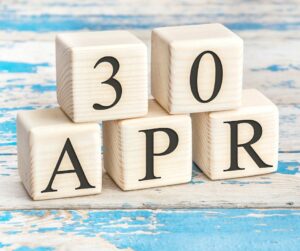What is the Underused Housing Tax?
The Underused Housing Tax (UHT) is a new 1% annual tax levied on the value of residential property owned by non-Canadians and some companies/trusts that is vacant or considered underused. The intention of this tax is to deter non-residents and some companies/trusts from passively investing in Canadian real estate and to make housing more available to Canadian residents.
Who needs to file?
 All non-Canadian property owners and some companies/trusts are required to file a UHT form (UHT- 2900) with the Canada Revenue Agency (CRA) by April 30 annually. The tax itself will likely not apply to most GBA members who have property that is not suitable for year-round use (exemptions 630 or 635), however all non-Canadian property owners and some companies/trusts are required to file even if they will be exempt from paying the tax.
All non-Canadian property owners and some companies/trusts are required to file a UHT form (UHT- 2900) with the Canada Revenue Agency (CRA) by April 30 annually. The tax itself will likely not apply to most GBA members who have property that is not suitable for year-round use (exemptions 630 or 635), however all non-Canadian property owners and some companies/trusts are required to file even if they will be exempt from paying the tax.
Tips for filing
To file a UHT tax form, you must have a valid CRA tax identifier number. If you do not have a Canadian Social Insurance Number (SIN) you will need to apply for an Individual Tax Number (ITN). The ITN application form (T1261) and supporting documents must be mailed to the CRA. This process can take up to 8 weeks, so please submit your application as soon as possible.
Companies/trusts that need to file the UHT need a Business Number. Information on how to get a Business Number, if you do not have one (i.e. non-resident businesses), can be found here.
Water access properties do not have a Canadian postal code, so when filing the UHT form this should be left blank. Do not use the postal code of your local post office as this may negate your exemption.
 GBA has spoken to the Canadian Revenue Agency (CRA) and they see no issue with not having a postal code to input on the form (only road access properties will have a postal code).
GBA has spoken to the Canadian Revenue Agency (CRA) and they see no issue with not having a postal code to input on the form (only road access properties will have a postal code).
Not having a postal code means that you will also be unable to access the: “Underused housing tax vacation property designation tool”, but it is not necessary to do so if you are exempt as above, and the tool is not helpful, in any event.
Filing Extension for 2023
The minimum penalty for late filing is $5,000 per property for any individual owner. Although April 30, 2023 was the deadline to file your UHT form, the CRA has effectively extended the filing deadline for the Underused Housing Tax (UHT) to April 30, 2024, this year only, in an effort to provide more time for affected owners to comply. The CRA’s application of penalties and interest will be waived provided the return is filed by April 30, 2024.
If you find that you are nearing the deadline, then we have received advice from CRA on how to avoid late filing fees, as follows:
- File for an ITN number or Business number as soon as possible. These requests can take up to eight weeks to process, so the sooner you can start that process the better. This number will be needed for any future dealings with the CRA, such as UHT filings, so please remember to store your ITN or Business Number safely. To get an ITN or Business number you need to complete the application form as above and mail it along with the applicable government ID (certified or notarized copies).
- When you complete the UHT form as above, include an explanatory note explaining why you are submitting the form without an ITN (or Business) number, and also include a copy of the ITN (or Business Number) application submitted, which should include the date it was filed. With this information CRA should be able to process your filing and you should not incur any late filing charges due to the lack of an ITN (or Business) number by the April 30 deadline.
- However, should CRA levy any late filing fee, you can file an objection through taxpayer relief provisions available. In this case, because the UHT form was released very late, has been poorly communicated by CRA, and may not provide enough time for filers to obtain an ITN or Business Number before the deadline in some, or most, cases, CRA advised that there would be sufficient grounds for an appeal.
US Congress Members Ask for Exemption from Underused Housing Tax (UHT)
A group of US Congress members, led by Brian Higgins, are lobbying to exempt US property owners from the UHT, arguing that it breaches the United States – Mexico – Canada Agreement and citing hardships being suffered. GBA previously weighed in on this issue with the Canada Revenue Agency leading up to the effective filing deadline extension.
What you can do as a US resident who owns property in Canada
Please consider completing this online survey to help this campaign to exempt US property owners from the UHT.
For background information on this campaign, please see:
- An explanatory letter from Congressman Higgins – June 2023
- Brief to the Canadian House of Commons Standing Committee on International Trade – June 2023
- Letter from the group of US Congress members to the US Secretary of State – May 25, 2023
Ottawa is Considering Exempting Canadians From Filing UHT for the 2023 Tax Year
In the latest twist, Ottawa is proposing to largely scrap filing requirements that would also affect many Canadian and permanent resident homeowners and some Canadian corporations. But the changes would only apply starting in 2023, excluding the year 2022, when the measure first came into effect. Read about this proposal here.
More information on the UHT can be found here.
This article is intended for general information purposes only. While we have attempted to provide information that is helpful for our readers, GBA does not provide tax, legal or accounting advice and accepts no legal liability for the contents of this article. Ensure you check original sources for additional details and updates. For advice regarding your personal taxation and filing needs, please contact your own tax professional or accounting advisor.

